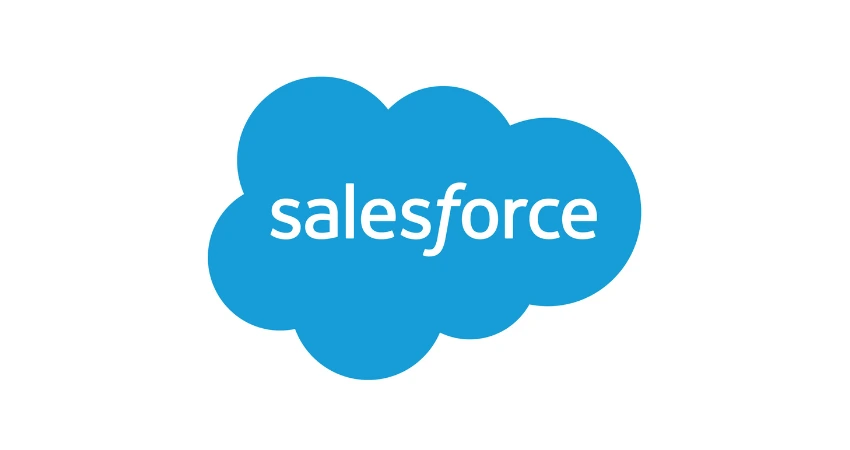Salesforce: What is it and how does it work?

Salesforce is a CRM (Customer Relationship Management) platform that offers comprehensive solutions for marketing, sales, commerce, and customer service. Its wide range of products and functionalities makes it an essential tool for large corporations seeking to unify and optimize their operations.
Companies worldwide from various sectors use Salesforce to enhance their customer relationships. Among them are major corporations such as Coca-Cola, Adidas, Toyota, L'Oréal, and Spotify. These companies trust Salesforce to improve their business processes.
Why do companies adopt Salesforce?
Unifying all business information on a single platform, creating a “single source of truth.” This facilitates collaboration between departments and ensures that all teams work with updated and consistent data.
Systematizing marketing, sales, and customer service processes, improving coordination between departments and avoiding duplicated efforts. This enables greater operational efficiency and better strategic alignment.
Accessing real-time information, allowing for data-driven decision-making. The ability to generate instant reports and analyses helps companies respond quickly to market trends and customer needs.
Delivering consistent messages across all touchpoints, enhancing communication with customers and prospects. This strengthens brand image and ensures customers receive a seamless experience regardless of the communication channel.
Improving customer experience, increasing satisfaction and loyalty to the brand. Efficient and personalized customer service is key to retaining customers and fostering long-term relationships.
Salesforce has established itself as one of the leading CRM solutions, developing a vast ecosystem of tools that allow businesses to maintain total control. Additionally, Salesforce offers an active community and learning resources that facilitate the adoption and full use of its functionalities.
Salesforce Features
Salesforce is an all-in-one platform that provides all the necessary features to operate and manage your business.
Contact and Account Management
Complete Customer Profile: Stores detailed information about each customer, including contact details, interaction history, and preferences.
360° Customer View: Offers a comprehensive view to personalize interactions and improve customer experience.
Customer Segmentation: Enables classification and segmentation of customers for more effective marketing campaigns.
Lead and Opportunity Management
Lead Tracking: Tracks and manages leads from capture to conversion into opportunities.
Lead Scoring: Uses custom criteria to identify the most promising leads.
Opportunity Management: Manages the complete sales cycle, tracking each stage until closure.
Sales Force Automation (SFA)
Automated Workflows: Automates repetitive tasks such as lead assignment and email sending.
Automated Approvals: Sets up approval processes for discounts, special pricing, and other critical aspects.
Notifications and Reminders: Sends alerts for pending tasks and necessary follow-ups.
Advanced Analytics and Reporting
Customizable Dashboards: Visualizes key metrics in real-time for informed decision-making.
Detailed Reports: Generates reports on sales performance, campaign effectiveness, and customer behavior.
Sales Forecasting: Provides tools to predict future revenues and set realistic goals.
Customer Service Management
Cases and Requests: Manages customer inquiries and issues efficiently.
Knowledge Base: Creates and manages a resource library for resolving common problems.
Multichannel Service: Interacts with customers via email, chat, phone, and social media.
Marketing Automation
Personalized Campaigns: Designs and executes targeted marketing campaigns.
Segmentation and Targeting: Identifies specific audiences for more effective messaging.
Lead Nurturing: Nurtures leads through automated and personalized communications.
Artificial Intelligence with Einstein
Predictions and Recommendations: Uses artificial intelligence to predict customer behavior and recommend strategic actions.
Sentiment Analysis: Gains a better understanding of customer interactions by analyzing tone and emotion in communications.
Smart Automation: Enhances processes with machine learning-based automations.
Salesforce Products
Salesforce offers several products (also known as modules) that businesses can access:
Sales Cloud: A CRM for sales management that automates tasks, manages leads and contacts, and provides forecasts and performance analysis with artificial intelligence.
Service Cloud: A customer service platform that centralizes cases and inquiries, offers omnichannel support (email, social media, chat), and self-service options to enhance the customer experience.
Marketing Cloud: A multichannel marketing automation tool (web, mobile, SMS, social media) that personalizes campaigns and analyzes real-time strategy success to optimize results.
Commerce Cloud: A solution for managing B2C and B2B online stores; personalizes shopping experiences, manages inventories, offers SEO features, secure payments, and performance analysis.
Pardot: A B2B marketing automation platform that allows lead tracking and scoring, alignment between sales and marketing, and strategic analysis to improve effectiveness.
Einstein Analytics: An artificial intelligence tool for advanced CRM data analysis; predicts trends and recommends data-driven strategic actions.
Quip: A real-time collaboration application that combines document editing, spreadsheets, chat, and project management into a single platform.
Salesforce CPQ: Automates product configuration, pricing, and quotes; accelerates the sales process with specific rules and reduces errors in proposals.
Who is Salesforce for?
Salesforce is primarily designed for large corporations and international organizations. Its robustness and scalability allow it to handle massive volumes of data and users, making it an ideal choice for companies that require complex and customized solutions.
Established Businesses: It is best suited for companies with established sales, marketing, and customer service processes. It helps optimize and scale operations, leveraging data analysis for strategic decisions.
National and International Organizations: Its ability to manage multiple regions, languages, and currencies makes it ideal for companies operating in diverse markets. Local businesses may not need all the advanced functionalities.
Mature Digital Teams: Suitable for companies with a mature internal or external digital team with the resources and expertise to effectively implement and manage the platform.
Specific Industries: Sectors like finance, manufacturing, retail, and telecommunications can greatly benefit from its advanced features, especially in terms of customization and data analysis.
On the other hand, small and medium-sized enterprises (SMEs) or startups may find that Salesforce offers more features than they need and can be complex and costly for their operations. In these cases, simpler solutions like HubSpot CRM, Zoho CRM, or Pipedrive may be more appropriate.
It's important to assess whether Salesforce’s features align with the needs and capabilities of each organization, especially in terms of resources and team availability for implementation and management. If a company is growing and requires a robust platform that can adapt to complex needs, Salesforce is a worthwhile option to consider.
For smaller or early-stage companies, it may be more efficient to explore alternatives that better fit their scale and budget. In any case, choosing a CRM should be based on a detailed analysis of the specific needs of the business and how each solution can meet them.
Salesforce is a powerful tool that can transform how a company interacts with its customers and manages its internal operations. Its wide range of features and products makes it a versatile and adaptable solution for various industries and business needs. However, it is crucial to carefully evaluate whether its implementation is viable and beneficial for the organization, considering factors such as resources, strategic goals, and adaptability. With proper planning, Salesforce can be an investment that provides significant returns and a competitive edge in the market.


